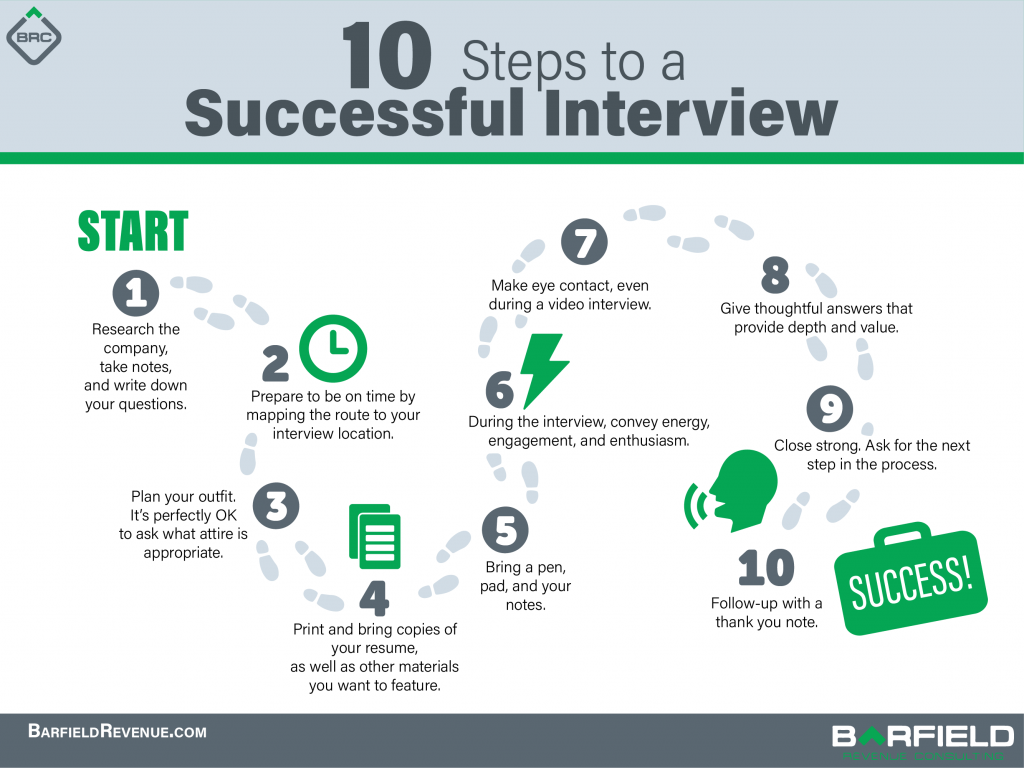
Finding a job often feels like waiting to get asked to dance. Job seekers put themselves out there, spend time getting ready to interview, go meet new people in awkward settings, and then wait for an offer. More often than not, it feels like the company has all of the power — you’re just standing there, forcing a smile, and hoping to get picked.
But letting the company wrestle away all control isn’t going to help land you a job you love. 
Studies show that 66 percent of people are dissatisfied with their daily work lives. There are many reasons why so many find themselves in a job they dislike, and a big part of the problem begins with the interview process. Auditioning for a role isn’t just you showing the interviewer how awesome you are while also assuming that the job you want is an ideal fit. If you want to be on a positive, rewarding career trajectory, and if you want to develop professionally while also looking for a long-term home, you need to interview the interviewer. Go into your meeting with the hiring manager prepared with that set of standard questions, yes, but also go in with your personalized set of pointed, thought-provoking inquiries to help you truly decide… “If they want me for this job, do I really want to work here?”
Start with research.
As part of interviewing for a job, you should always research the company. Doing so will help to demonstrate your interest while also presenting you as a better candidate. But research has a benefit for you, too — you are very likely to discover critical things you need to know about the company in order to make an educated employment decision.
Of course, obvious things such as compensation and benefits factor significantly when choosing a job. But items like culture, work lifestyle, and flexibility, company mission and values, employee stability/turnover, etc., are also major considerations, particularly when you are trying to determine whether or not you will be truly “happy” in a new position.
This type of stuff isn’t often covered in depth by your interviewer, so you will need to rely on self-led research. Check out the company’s “About Us” page on the website. Peruse job boards and company rating websites for feedback from others. If you know people (or know people who know people) who work for the company, ask for insight, feedback, and off-the-record intel. Once all of that data has been collected, you should have more than enough information to assemble your personalized list of deeper-dive interview questions.
Ask useful questions.
Strategic questions help to set up a meaningful dialogue, and that’s what you’re going to need when it comes to deciding whether or not an opportunity is for you. As an example, when meeting with the hiring manager at a startup or early-stage small company, you might want to ask how long they’ve been in business, where they are with funding and burn rate, what the exit strategy looks like, etc. You may not get answers to all of your questions, but the interviewer will surely appreciate your level of prep and interest, and you won’t get caught by surprise accepting a job with a startup that is 90 days away from not being able to make payroll.
Fairly recently, a candidate we were helping needed to find work pretty fast. She interviewed on her own with a company where sales team turnover was a known issue and part of how the organization operated. While pockets of employees in certain segments of the company were happy, the sales team had a notoriously high churn rate. However, the company was in growth mode, with new investment funding and several new leadership hires. Employees felt hopeful that the change in management would alter internal culture for the better, thus helping to alleviate the turnover problem. This candidate received an offer and took the job. Unfortunately, the one thing that did not change when the funding landed was the person at the head of revenue. Ultimately, she came back to us after less than a year and said: “I tried my best. I bought into the changes promised in the interview and didn’t listen to the marketplace or to my peers who had worked there before. Can you help me again?”
In this case, could questions generated from her research of the marketplace and via Q&A with her peers have helped with the decision here? Very possibly. But new $$$ and new leadership always brings hope of change for the better, so an interviewer answering her probing inquiries in that way may still have been able to quell heightened turnover concerns. Nonetheless, we don’t know how that interview would or could have played out differently because the personally-useful questions were never asked.
What are some good questions?
Your phrasing, tone, and approach will matter greatly. Be thoughtful about what you ask and how you ask it. And in some cases, the answer might already be available online, so if you haven’t done your deep-dive homework first, you run the risk of damaging your interview chances by appearing underprepared. Here are some examples of questions you can ask:
Assess the answers.
Answers to your personally-focused questions will absolutely help to give you an educated indication of whether or not an opportunity is a good potential fit. Gather together everything you’ve learned, organize it, make a “pluses and minuses” spreadsheet (if you dig visuals), and study and process all of the data. There is a science to choosing the right job, and it shouldn’t be the nervous, unpredictable experience of waiting blindly to get picked to dance. Interview your interviewers, and try to gain as much control as you can over your own job exploration adventure.
If you’re looking for your next career move, please give us a call for help.
Hear about our latest job openings and get other job search advice in our monthly newsletter. Sign up.

Image by Mohamed Hassan
Job interview processes are stressful, and we field a lot of questions about the best ways to prepare for — and to execute — an interview. Most people have never received any sort of interview training, and if they are employed on a consistent basis, chances are that they don’t have a plethora of opportunities to practice. As a result, even with senior-level candidates, I often see a shortfall in the interview performance department.
Last week, we wrote about closing your interviews with a strong message of interest. But that part happens at the end. There are MANY steps along the way that you can take to stand out as a candidate. Several of these may seem almost elementary, yet many people don’t take the time to do them — or to do them well.
Step One: Do your research and come with questions.
Thoroughly look into the company and your interviewer. And read the job description several times. With all of the online tools available at your fingertips, there is no excuse for not being incredibly prepared on the research side. What’s the company’s mission? Where did your interviewer go to college? Which of the job responsibilities did you CRUSH in your most recent role? Come ready to show that you know your stuff and that you are super relatable.
During the course of your research and your job description scrubbing, questions inevitably will pop into your head. Write them down. Or note them on your iPad or tablet or phone. Interviewers really appreciate it when candidates come to the party with thoughtful questions. It exhibits interest, preparedness, and a desire to win the interview.
Step Two: Prepare to be on time.
Whether it’s the first phone screen or an in-person interview, you must be timely. If you are the one calling, do not be late. If you are supposed to call at 2:00, call at 2:00. If it looks like you might be running late, reach out ahead of time via email and/or text and explain why. And please don’t call early. It’s not impressive to be early to a phone interview. It’s actually irritating. Most interviewers are heading into your call straight from another commitment, so calling early is an inconvenience.
Speaking of being inconvenient, don’t be super early for a face-to-face interview. Your goal should be to arrive five minutes early. Do not arrive 15 or more minutes early, it’s discourteous. Your interviewer should not have to worry about you sitting in the lobby for 15 minutes with time to kill. Plus, you could cross paths with other candidates, which can be awkward and is certainly not the interviewer’s intention.
As part of your in-person interview preparation, make the trek to the site on a prior day and do so during the same time of day. See how long it takes you to make the trip so you can get an accurate sense of the amount of time needed, traffic included. You do not want to run the risk of being late or sliding in right at the scheduled time.
Step Three: Prepare your look/attire.
Work attire has changed a lot over the years. If you aren’t sure what clothing will be appropriate for the interview (video or on-site), ask in advance. You don’t want to be overdressed or underdressed. You don’t want to fail to fit correctly with either the company vibe or the interviewer’s expectations. Inquire ahead of time, and your point of contact will appreciate that you want to get it right. It’s definitely not cool to don a suit for a “T-shirt and jeans” setting.

Step Four: Print and bring with you copies of your resume.
Yes, many people prefer an electronic format and may have your resume on their screen during the meeting. But you don’t know for sure, and you want to be prepared. Additionally, bring one more copy with you than you think you’ll need. If the exchange is going well, the person with whom you are meeting might grab a colleague and ask her or him to join. Stay one step ahead by having a spare copy.
Step Five: Bring something to write with and something to write on.
Please have what you need in order to take notes, whether it’s an in-person interview or a phone call. You’re not sending the right message otherwise. There’s no reason to step into an interview situation without a pen or a pad or a device you can use to take notes. Period. Ever. Interviewers like to see that you are taking notes and highlighting key points. And if it’s a phone call, some of the factors you jot down will be great to bring up later in the conversation as thoughtful questions.
Step Six: Convey energy, engagement, and enthusiasm (3 Es).
These points apply to both phone or face-to-face communication, whether via video or in person.
Step Seven: Make eye contact.
You would be surprised at how few people do this well and how much it matters. Making eye contact can be difficult and uncomfortable for some, particularly when meeting a person for the first time, or if they are feeling nervous or anxious. Nonetheless, it’s critical in interviews, whether in person or via video. Interviewers are looking to make a connection.
Hiring is not just about skills and abilities, it’s also about fit and feel. A lot of decisions are made about a candidate during those moments of direct eye contact. Have a smile on your face, fabulous posture, and look ‘em straight in the eye. When it comes to video interviews, make a point of looking at the camera when your talking or when you’re processing a question from the interviewer. It’s not easy, but it’s very impactful.
Step Eight: Give answers that provide depth and value.
Do not answer even the shortest and most simple of questions with a reflexively short answer. “Yes/no” questions absolutely cannot receive a “yes/no” response. Respond thoughtfully, showing a depth of processing. Add value to the interview exchange by offering up insightful commentary.
However, on the flip side, be careful not to get too verbose. When we are nervous, it’s easy to overtalk/overshare in order to compensate for our anxiousness. A good rule of thumb is to keep an answer to 30 seconds or so, unless it’s clear that the interviewer has teed you up for a very detailed response that could take a minute or more. Don’t meander off track, either. If you end up in long-winded rambles too frequently during the conversation, your interviewer is going to disengage, and your odds at landing the job are going to get much worse.
Step Nine: Close strong.
We covered more on this one in our last blog post, so check that out.
Step Ten: Follow up.
Writing a “thank you” note has become a lost art. Help us bring it back. Whether it’s via email or snail mail, DO IT. The follow-up thank you note should be considered an extension of the interview process. When you craft yours, demonstrate that you were fully engaged in the exchange. Include a sentence or two that bring up critical points made by the interviewer, and tie those back to you strengths as a candidate. Convey your gratitude for the interviewer’s time, and close the note with a reaffirmation of your interest in the job.
Of course, re-read what you’ve written (multiple times), making sure it looks nice, has correct spelling and grammar, and sounds smooth and professional. Thank you notes are like post-interview cover letters. They provide you with a chance to exhibit your writing skills and to show that you are a well-rounded, top-notch candidate.
Final Note
While job interviews are stressful, if you approach them with the proper amount of preparation and dedication, you will have no trouble standing out from your interview competition.
Reach out to us for help finding your next revenue-generating sales or marketing job. We’ve done a few interviews in our day!

Well … Regardless of whether you’re looking to work in sales or not, you are selling yourself at every stage of the job acquisition process. What is an interview, really? It’s your sales pitch to someone saying, “Here’s why you should hire me.” There aren’t many instances where you walk into a hiring manager conversation knowing you already have the position. A salesperson needs to have a strong close to her/his pitch to land the deal; you need to have a strong interview close to land the offer.
Picture this: you’re all done, and the interviewer explains what’s going to happen next, how long it will take, and that she/he will “be in touch.” Then that person asks, “Do you have any more questions?”
Close the Interview with the Right Question
Most people know that they should bring thoughtful questions to an interview. If you do your research, read up on the company and the interviewer(s), and study the job description, you certainly should have questions to ask. But you should always keep the most critical question for the very end: “Is there any reason not to move forward here? I want this job.”
Deliver this closing in your own way, of course. There’s no perfect final question, and you have to go with something that sounds natural and feels comfortable. In fact, you should practice beforehand, either alone or with someone else, so that you can find the language that suits you best.
The ultimate goal when closing the interview is not just to demonstrate your significant interest in the position. What you are truly doing here is making a strategic move to garner some control during the interview process. If you let the interviewer tell you what’s going to happen next and how long you might be waiting, and then let that person say to you that she/he will be in touch, you are relinquishing 100% of the control in the process to the interviewer. By closing the interview at the end and posing a question back to the interviewer, you are capturing some of the control in this dynamic, and you are compelling an answer (and some action) from the person who very well may determine whether or not you get hired.
Therefore, you might say something like, “Yes, I do have one more question. Now that I’ve interviewed with you, I am even more interested in this job. What do I need to do to be the person who lands this offer?”
The interviewer may give you a non-committal answer. The company may have other candidates remaining in the pipeline and more interviews to execute. But you can be confident that your closing question will stand out in her/his mind when it comes time to make THE decision, and you can rest assured that you are likely the only person in consideration who CLOSED.
Closing an interview occurs at the end. But there’s a lot more that goes into setting yourself up for a great interview. Read our post next week to learn more.
Or, contact us for help finding your next job and preparing for it like a pro.
